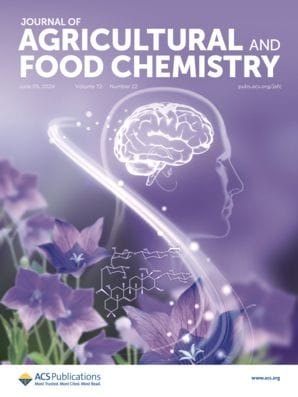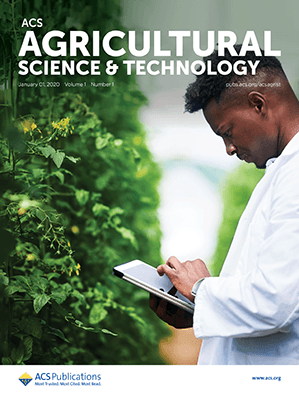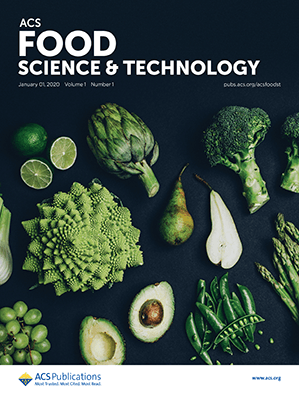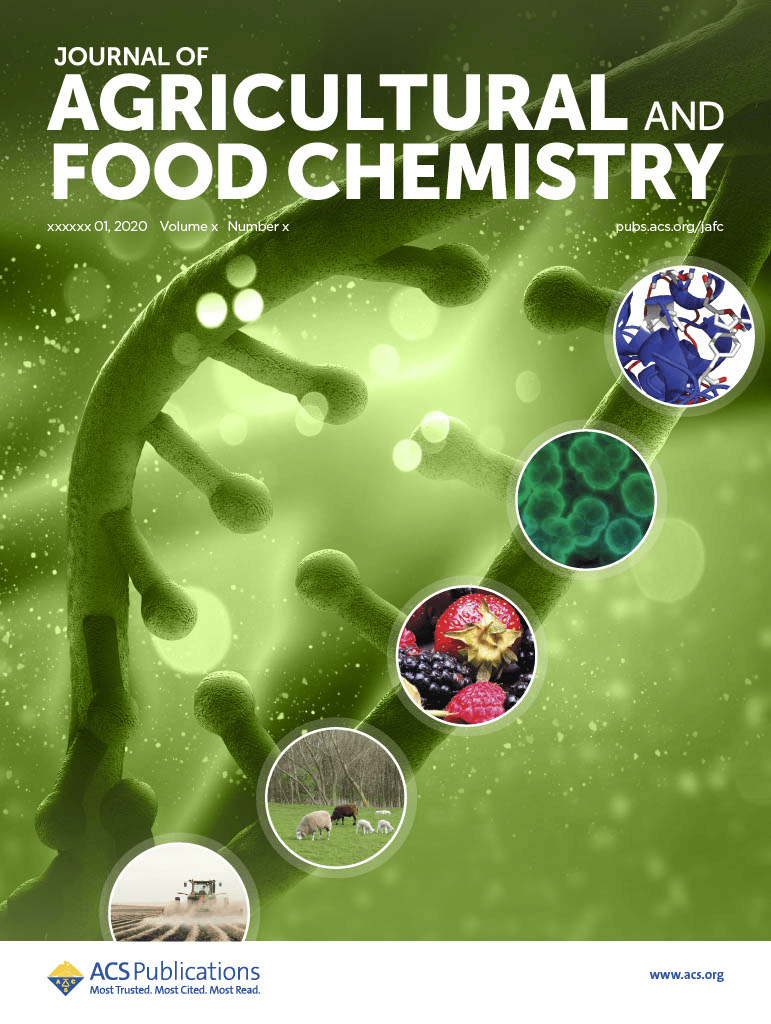This joint Virtual Special Issue will feature cutting-edge advancements in nanotechnology that support the global agenda for food security and environmental conservation. Submit your manuscript by October 1, 2024.

The rapidly growing global population and the increasing challenges of climate change, resource depletion, and food security necessitate innovative approaches to ensure sustainable agricultural practices. Nano-enabled technologies offer groundbreaking solutions by enhancing efficiency, reducing environmental impact, and improving the quality and safety of food and agricultural products. This joint Virtual Special Issue, to be published across Journal of Agricultural and Food Chemistry, ACS Agricultural Science and Technology, and ACS Food Science & Technology, aims to highlight nanotechnology's latest advancements and applications in sustainable food and agriculture, fostering interdisciplinary collaboration and accelerating the adoption of these cutting-edge innovations.
Nanotechnology holds immense potential in transforming agricultural practices and food production systems. From improving crop yields and resilience to enhancing food safety and quality, nano-enabled technologies address critical challenges in the agricultural sector. By integrating nanotechnology, researchers are developing more efficient fertilizers, pesticides, and water management systems, as well as innovative packaging materials and sensors for food quality monitoring. These advancements contribute to higher productivity and sustainability and support the global agenda for food security and environmental conservation.
Potential Research Topics
We invite authors to submit original research Articles, Reviews, and Viewpoints that explore the following topics, including but not limited to:
Nano-fertilizers and Nano-pesticides
- Development and application of nano-fertilizers for enhanced nutrient delivery, agronomic fortification and uptake.
- Design and efficacy of nano-pesticides for targeted pest control and reduced environmental impact.
- Mechanism of action of nano-fertilizers and nano-pesticides.
Nano-enabled Water Management
- Nanotechnology applications in water purification, desalination and remediation for agricultural use.
- Nano-structured materials for efficient water retention and irrigation management.
Nano-enhanced Food Packaging and Preservation
- Development of nano-packaging materials for extended shelf-life and improved food safety.
- Nano-coatings and films for active and intelligent packaging solutions.
Nanotechnology in Food Quality and Safety
- Nano-sensors for real-time monitoring of food contaminants and spoilage.
- Nanoparticle-based methods for detecting and mitigating foodborne pathogens.
Sustainable Crop Production
- Use of nanomaterials to improve crop resistance to environmental stressors.
- Nano-enhanced soil conditioners and amendments for sustainable agriculture.
Nanotechnology-Enabled Artificial Intelligence for Agriculture
- Integration of nanotechnology and AI for precision agriculture.
- Smart nanosensors for data collection and real-time decision-making.
- AI algorithms enhanced by nanotechnology for crop monitoring and yield prediction.
Nanotechnology-Based Tools for Agriculture Management
- Development of nano-based tools and devices for efficient farm management.
- Applications of nanotechnology in monitoring soil health and crop growth.
- Nano-enabled solutions for pest and disease management in agriculture.
Environmental and Health Impacts
- Assessment of the ecological and health implications of nano-enabled agricultural practices.
- Strategies for minimizing potential risks associated with nanotechnology in agriculture.
Nanotechnology in Livestock and Aquaculture
- Applications of nanotechnology in animal feed and health management.
- Nano-enabled solutions for sustainable aquaculture practices.
Regulatory Landscape, Globally Harmonized Guidelines, and Policy Development
- Examination of current regulations and guidelines for the use of nanotechnology in agriculture.
- Development of globally harmonized standards for the safe use of nano-enabled agricultural products.
- Policy recommendations for promoting sustainable and safe nanotechnology applications in agriculture.
Organizing Editors
Leonardo Fernandes Fraceto, Guest Editor
Editorial Advisory Board, ACS Agricultural Science & Technology
São Paulo State University, Brazil (Email)
Ramesh Raliya, Associate Editor, ACS Agricultural Science & Technology
Smart Aerosol Technologies, United States (Email)
Laura McConnell, Deputy Editor, ACS Agricultural Science & Technology
Bayer Crop Science, United States (Email)
Qing Li, Associate Editor, Journal of Agricultural and Food Chemistry
University of Hawai'i at Manoa, United States (Email)
Yixiang Xu, Associate Editor, ACS Food Science & Technology
USDA-ARS, United States (Email)
Submission Guidelines
The deadline for submissions is October 1, 2024.
Authors are invited to submit their manuscripts to Journal of Agricultural and Food Chemistry, ACS Agricultural Science and Technology, or ACS Food Science & Technology. All submissions, including invited manuscripts, will undergo the rigorous peer review process of the relevant journal to ensure the highest quality of published research. For detailed submission guidelines and to submit your manuscript, please visit the relevant journal's website linked above.
For inquiries, please contact the Managing Editor, William King, at WKing@acs-i.org.
We look forward to your contributions to this exciting Virtual Special Issue which aims to showcase the transformative potential of nanotechnology in creating sustainable solutions for food and agriculture. Join us in advancing the frontier of nano-enabled technologies in agriculture and food for a sustainable future!
How to Submit
- Log in to the ACS Paragon Plus submission site.
- Choose either Journal of Agricultural and Food Chemistry, ACS Agricultural Science and Technology, or ACS Food Science & Technology as your journal.
- Select your manuscript type.
- Under “Special Issue Selection” choose “Emerging Nano-Enabled Technologies for Sustainable Food and Agriculture.”
Open Access: There are diverse open access options for publications in American Chemical Society journals. Please visit our Open Science Resource Center for more information.
Stay Connected with These Journals
Never miss an issue again! Sign up now for email updates on future calls for papers, the latest articles, and other content from the Agricultural and Food Chemistry journal portfolio.

Journal of Agricultural and Food Chemistry

ACS Agricultural Science & Technology

